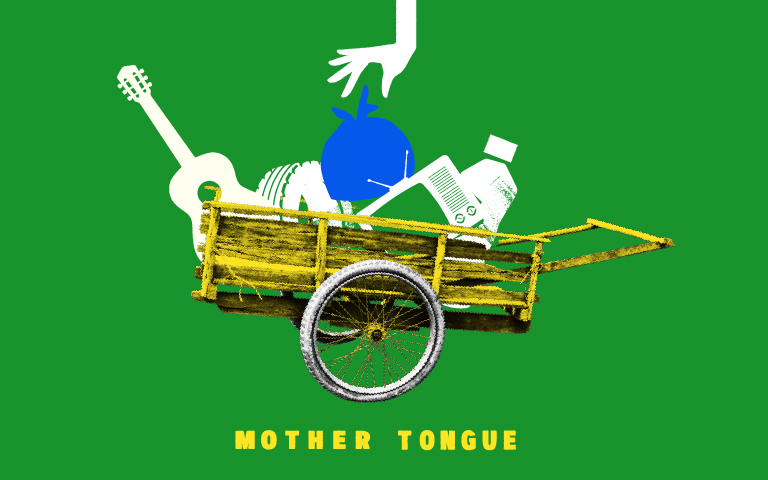Dr. Andrew G. Britt, Assistant Professor at the UNC School of the Arts and a 2018 alumnus of the graduate program, served as a dramaturg over the 2021-’22 academic year for a UNCSA play focused on Brazilian waste pickers (catadores). Titled Mother Tongue, the production was conceived of and directed by Marina Zurita, a fourth-year student in UNCSA’s top-ranked drama program. That play was a devised piece, meaning that Zurita and the cast collectively produced the play’s central narrative together. Interviews that Zurita conducted with catadores in her native city of São Paulo served as the raw material for the devising process. Britt provided support to Zurita throughout the research process and to the director and cast while they devised the narrative, including by offering short courses on Brazilian history and culture and organizing virtual conversations with other Brazilian scholars. Check out the dramaturg’s note that Britt composed below for the show’s program and read more about Mother Tongue here: “‘Mother Tongue’ is first devised theater production at UNCSA by a student.”
Every day throughout Brazil, hundreds of thousands of pickers, or catadores in Portuguese, comb through the solid materials either discarded by the country’s more than 210 million residents or exported to Brazil from other nations. Pickers collect paper, plastic, glass, aluminum and other metals, frequently amid
hazardous environmental conditions. They transport these materials to processing facilities, sort and organize them and resell them to companies who utilize them to produce new goods.Without the informal labor of this fleet of green-collar workers, millions of tons of recyclable materials would end up in landfills. Though not formally employed by Brazilian public institutions like municipal governments, pickers perform an essential public service. Some estimates hold that pickers contribute to the processing of 90% of Brazil’s recycled materials. Other countries throughout the world, especially those in the Global South, similarly depend on pickers for recycling streams and waste management. Even New York City has its own cadre of between 8,000-10,000 pickers, known locally as canners, who scour
city streets for reusable material.While pickers perform essential labor worldwide, their work has long been unrecognized by government officials and stigmatized by society at large. This dynamic has begun to shift in recent years, however. Over the last three decades, coalitions of pickers in countries like Brazil and Colombia have led effective movements for greater rights and recognition. Brazilian federal law now grants pickers some protections and benefits as laborers, and Brazilian cities are now officially incentivized to coordinate with pickers in their waste management programs. The inclusion of pickers in state-coordinated recycling streams in Brazil has influenced public policy in other countries. The grassroots movement that brought about these changes has deep roots in the city of São Paulo at a local picker-led recycling cooperative where materials are sorted and sold. Some of the stories in “Mother Tongue” were inspired by the workers at this cooperative.
Even as the labor of pickers has become more recognized, the lives of pickers themselves remains shrouded in stigma and prejudice. With “Mother Tongue,” we invite audiences to cross these barriers of misunderstanding and connect with the inner and outer lives of these essential workers.
